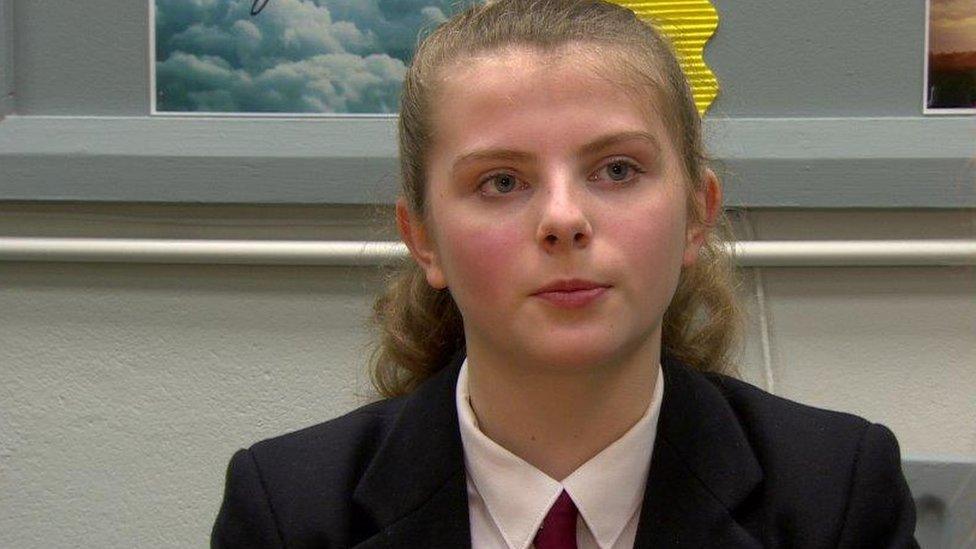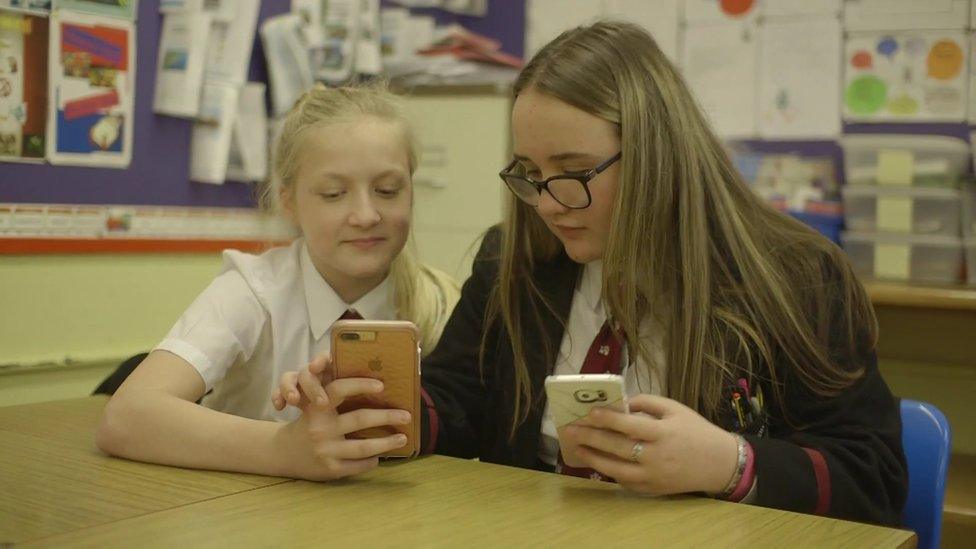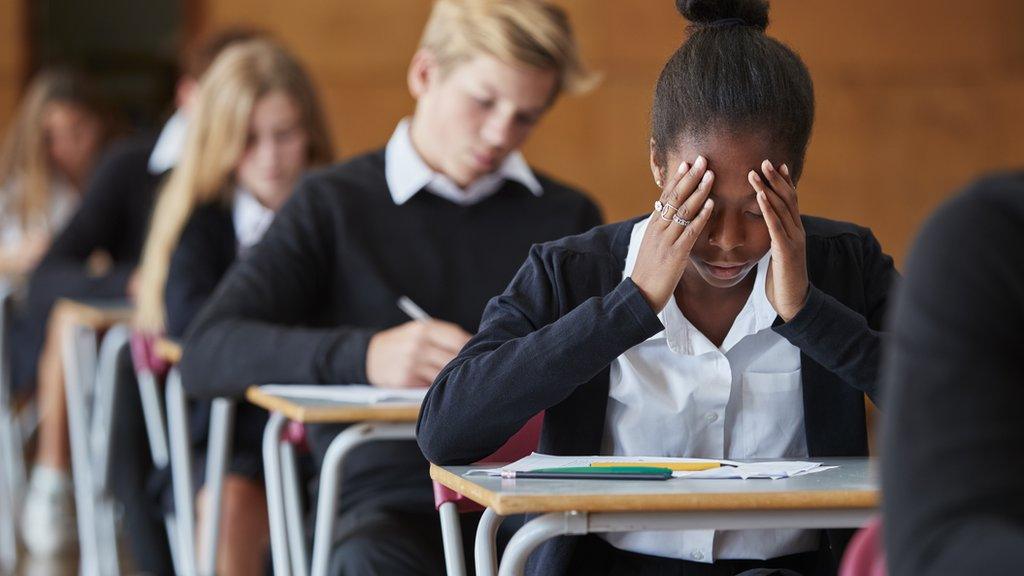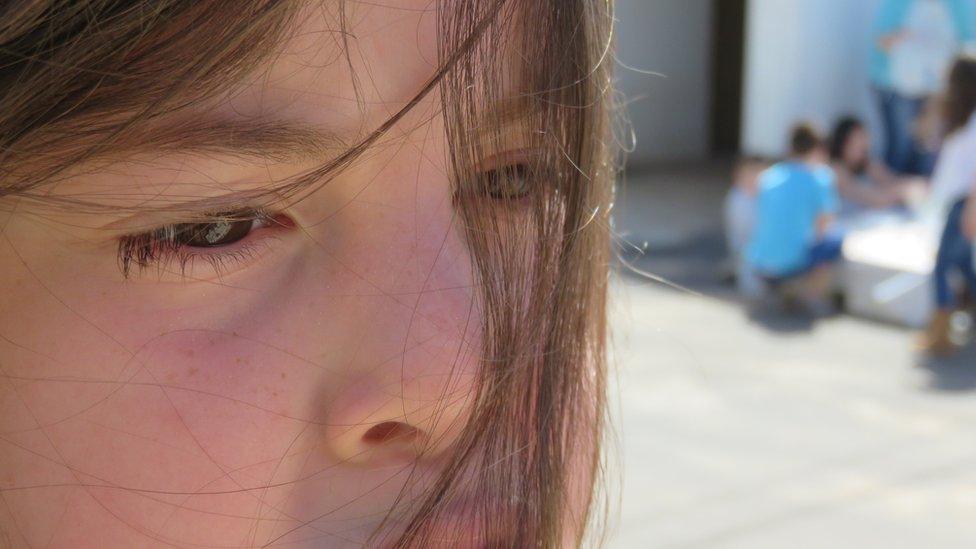Mental health: One in 10 NI school children have a diagnosable illness
- Published
Carrickfergus Grammar school have made a pupil raising awareness of mental health
One in 10 school children in Northern Ireland have a diagnosable mental illness.
Some 35,000 children were treated by Child and Adolescent Mental Health Services (Camhs) in 2018.
Schools find themselves at the front line dealing with the day-to-day anxiety manifesting itself among our children.
Many are developing programmes and offering counselling services to help.
'You need to talk to someone'
Among them is Carrickfergus Grammar School. Pupils there, along with the charity Action Mental Health (AMH), have developed a video that looks at some of the problems and suggests solutions to help.
Body image, exam stress and bullying are the main topics they cover.
Year 10 pupil Laura said: "If you feel your mental health isn't good, then you need to talk to someone to make it better."

Laura is in year 10 at Carrickfergus Grammar School
The students said they're not immune to the pressures of life either.
"I try to look after myself but I do get concerned sometimes. I just find it hard to be happy sometimes and I don't want my friends to worry so that kind of pressure builds up," added Laura.
Her classmate Casey has felt down too: "I feel my mental health is good at the minute but it has been low. Sometimes I've felt there's no point in going on but there are times I feel amazing."
The students appear well equipped to recognise when they feel down.
Social media
Carl says he is stressed sometimes but he resolves it by listening to music, reading a book or talking to his family.
He has also helped friends in crisis.
He said: "I organise a day out with them, maybe to the swimming pool, and I listen to their problems."

Pupils produced a video looking at mental health issues
So how significant is social media in their lives? Only one of the students we spoke to wasn't on social media.
Dylan says most of his friends measure popularity by the number of followers or likes on social media.
"If you get more likes then you're more popular really and if you have longer streaks (on Snapchat) then you're more popular," he said.
Carl agrees with this view.
"If you see someone else having more followers and likes then you can feel you're down in popularity compared to them," he said.
Emotional health
Dr Phil Anderson is a consultant psychiatrist in Cahms with the Belfast Trust.
He said: "The research shows there has been an increase in the emotional difficulties in children, a 50% increase since 2004.
"There are various reasons given for this one is social media and the rise of cyber bullying and screen time.
"Some people have said it's as a result of rising economic inequality and, of course, academic pressures."
Dr Anderson said research is continuing to show the important role parents have to play.
"There are huge pressures, financial pressures and working time pressures for families these days but the message is still it's so important to spend that regular quality time with your child and it's the most important investment you can make in their emotional health for the future."
The video and other help is available on Action Mental Health's website www.amh.org.uk
- Published22 November 2018

- Published19 July 2018
